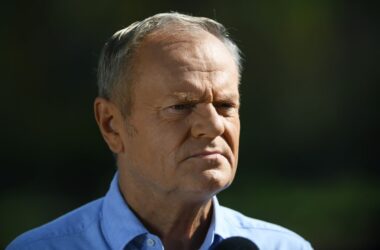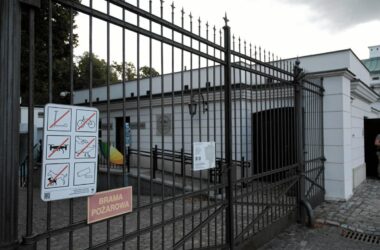A leadership showdown looms for Poland 2050 as it prepares for mid‑January elections, with internal divisions and coalition politics threatening its future.
Election timetable and Hołowni’s plans
Poland 2050 is preparing for elections and must select new leaders by mid‑January. Szymon Hołowni will not seek re‑election; he hopes to become UN High Commissioner for Refugees in December.
If that appointment does not occur, the current Sejm speaker is expected to move into the role of vice‑speaker.
Coalition unity under scrutiny
Ryszard Petru, former founder of Nowoczesna and now a Poland 2050 member, is the first willing to step down after Hołowni. He will launch an internal election in January, arguing the party needs a chance to regain public support.
Other members have also signalled interest: minister of climate and environment Paulina Hennig‑Kloska, party club head Paweł Śliz, European Parliament MP Michał Kobosko, MP Joanna Mucha, and first deputy chair Katarzyna Pełczyńska‑Nałęcz, who also serves as minister of funds and regional policy.
“They will stay with us,” says a party insider.
Vice‑Prime Minister dead‑heat
The coalition believes its MPs will largely support the government regardless of who becomes leader. Most would prefer to stay with the coalition than move to opposition.
During club and National Council meetings the choice of a vice‑prime minister for the new government was debated. The contest was narrowly won by Katarzyna Pełczyńska‑Nałęcz, who favours a hard stance against the Civic Platform and Prime Minister Donald Tusk; her rival, Paulina Hennig‑Kloska, preferred a less confrontational approach.
Implications for the party leadership
If Pełczyńska‑Nałęcz became vice‑prime minister under Tusk’s government, her position in Poland 2050 would be strengthened and could aid her fight for the leadership after Hołowni.
The coalition agreement does not allocate a vice‑prime minister position to Poland 2050; an amendment would be required. Though the alliance is unlikely to approve it, the opposition does not intend to block the minister’s promotion.
When asked on Radio ZET, the ministry minister reiterated that in the summer—without renegotiating the coalition deal—Radosław Sikorski had been appointed vice‑prime minister. “We were in full spirit of absolute coalition agreement and partnership, and we respect the nomination of Sikorski from the Civic Platform side. So now every party has its own vice‑prime minister, and the previous arrangement remains,” said Pełczyńska‑Nałęcz.
End of Hołowni could calm turmoil?
Critics say that Hołowni’s conduct has caused the coalition to suffer. The loss of his nomination may ease tensions.
Poland 2050 is struggling with falling polling numbers, the announcement of Hołowni’s resignation, and infighting that casts doubt on the unity of the group, especially after the departures of MPs Tomasz Zimoch and Izabela Bodnar.
Some view the end of Hołowni as a relief, while others see the possibility of new leadership. There is also speculation that, following the end of Tusk’s term, a transfer window may open, possibly leading to a joint coalition list that includes Poland 2050 MPs. “Ultimately, we will all end up on the same list,” said a Civic Platform MP.










